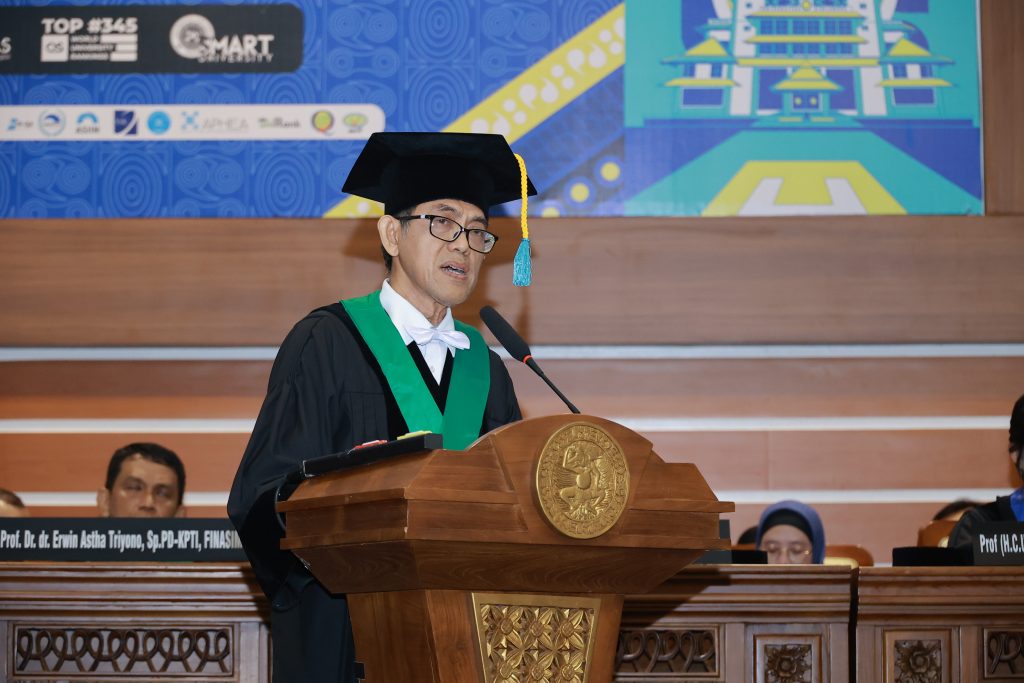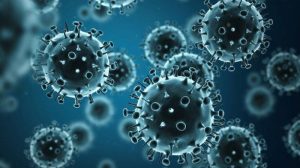UNAIR NEWS – Prof. Dr. dr Roedi Irawan M Kes Sp A(K) officially held the title of Professor of the Faculty of Medicine of Universitas Airlangga. The title was granted on Wednesday, December 12, 2023, at the Garuda Mukti Hall, Management Building, MERR-C Campus, Universitas Airlangga.
Prof. Roedi’s scientific oration titled “Nutrigenomics and microbiome nutrition as a new hope for children with Down Syndrome” indicates a forward-thinking approach to addressing Down syndrome. The concept was sparked from his participation in a workshop in Washington DC, USA.
“Nutrigenomics emerged from the workshop. The field investigates how the human body responds to nutrition, dietary patterns, and certain lifestyles. It encompasses the study of genes, gene variants (alleles), and their interaction with food,” he said.
Nutrigenomics provides a personalized recommendation for each patient. Hopefully, it will optimize the health condition by preventing the development of chronic and infectious diseases. Appropriate nutrition and diet have a significant impact on gene expression and the activity of the human immune system.
“It can increase life expectancy in children with Down syndrome. Children with Down syndrome are more likely to develop health conditions, like Alzheimer’s, hypertension, and early obesity,” he said.

Combining microbiome and nutrigenomics
The Surabaya-born professor explained that the implementation of nutrigenomics in dietary planning enables each individual to quickly receive tailored results based on their body’s response. Eventually, every person will have a diet and nutrition plan that is customized according to their DNA code.
“The basis for the potential of nutrigenomics lies in carrying out genetic testing and analysis. A simple genetic test allows a patient to get a complete analysis of the genetic code. We can use the analysis to develop an optimal diet,” he said.
In the human body, the microbiome helps digest food and break down potentially toxic food compounds. It also serves as a supportive organ that contributes to the proper functioning of the human body.
The use of microbiome and nutrigenomics have treated diseases that cannot be cured with conventional medicine. A microbiome is a microorganism that maintains human health.
“Hopefully, the combination of nutrigenomics and microbiome can increase the life expectancy of children with Down syndrome in Indonesia and improve growth delays associated with this condition,” he concluded.
Author: Satrio Dwi Naryo
Editor: Nuri Hermawan








